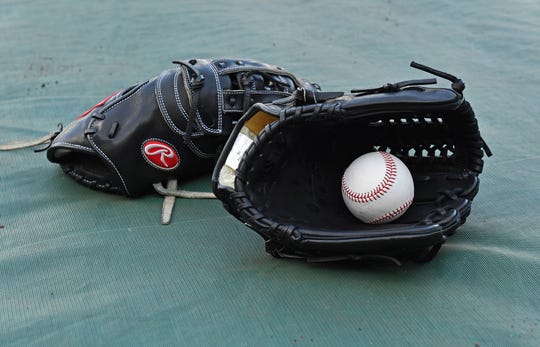Joe: Well, well, what do you want me to do?
Applegate: Just leave everything to me.
Joe: My job, my wife.
Applegate: This is a big operation. Can’t let things like that stand in the way.
Sixty-five years ago, “Damn Yankees,” a musical comedy about a literal “devil’s bargain,” debuted on Broadway.
Its main character, Joe Boyd, a die-hard baseball fan, was transformed by Mr. Applegate (the devil) into the “the long-ball hitter” his beloved Washington Senators desperately needed to beat the New York Yankees and win the pennant. However, it came at the price of those things Boyd held most dear: his wife and his immortal soul.
Boyd was able to negotiate an escape clause with Applegate. Today, however, millions of real-life baseball fans are being sold on a bad deal from which there will be no release.
Major League Baseball has proposed a plan that would strip 42 minor league clubs of their affiliation with a major league franchise. While MLB claims this fundamental overhaul of the minor leagues is necessary because of concerns over facilities and travel, it is really about money. And who is paying the price to boost the bottom line of MLB clubs? Minor league players and fans in 42 rural, suburban and urban communities across the country.
MLB's proposal would cut 42 minor league teams. (Photo: Peter Aiken, USA TODAY Sports)
For more than a century, minor league baseball has encouraged fan loyalty and provided opportunities for player development. And the federal government has been a partner along the way: MLB has received special protections in the law over the years — in large part because minor league baseball is a vital part of 160 communities across our nation.
Now that MLB is considering eviscerating more than 25% of those minor league teams, it is past time for Congress to inspect how to protect America’s pastime and the communities that support it.
Talking it out: Learning to discuss complicated issues ahead of the election
We want to hear from you: Be a part of the solution to finding solutions. Tell us here.
This moment has brought the four of us together: two Democrats and two Republicans; two senior members of Congress and two freshmen; and perhaps most astonishingly, a Yankee and a Red Sox fan.
We have teamed up to establish the Save Minor League Baseball Task Force in Congress. Its aim is to ensure that MLB treats the minor leagues fairly. As it stands, the scales are weighed far too heavily against the minor league clubs. Our involvement seeks to ensure that proper congressional oversight is brought to bear, and that there is an even playing field in these negotiations.
Families flock to minor league games
Minor league baseball is an affordable, family friendly and accessible — but still professional — version of America’s pastime. The teams are integral parts of their communities, uplifting local economies, bringing friends and neighbors together, performing thousands of hours of volunteer work, and raising millions of dollars for charities.
More than 80% of Americans live near at least one minor league baseball club. And last year, more than 41 million fans attended a minor league game — the 15th year in a row that attendance exceeded 40 million.
Going to a game didn’t break the bank, either. For a family of four, attendance — including food and drink — averaged about $70. Meanwhile, these clubs are reinvesting ticket proceeds into new facilities to serve the fans — $3.2 billion in new ballparks in the past 30 years. A number of these facilities would be left empty if the MLB plan is finalized as proposed.
Moreover, the plan would be devastating to grassroots charities that depend upon minor league baseball’s community spiritedness. Since 2015, the 42 clubs targeted by MLB have raised $9.7 million for local nonprofits. Last year alone, staff from those clubs completed 8,300 hours of volunteer service in their local communities. The MLB plan will not only deny fans access to baseball, but an array of charities in small cities and towns across the country will lose irreplaceable sponsors.
There can be a reasonable outcome to these negotiations that doesn’t involve 42 communities losing affiliated minor league baseball. Surely, there are ways to address concerns over subpar facilities and travel without going to this extreme.
Let’s protect grassroots baseball
The four of us did not seek out this fight, but we intend to stand our ground and protect grassroots baseball in these communities.
In November, more than 100 bipartisan members of Congress signed a letter to MLB Commissioner Rob Manfred opposing the proposal. We plan on keeping up the pressure, but it will take help from baseball fans everywhere. Outraged readers should write Commissioner Manfred to share your opposition to the plan, and ask your U.S. representative to join us on the Save Minor League Baseball Task Force.
Last season, Washington’s baseball team not only won the pennant but the World Series as well. Long-suffering fans, just like Joe Boyd, cheered, and no souls needed to be sold (we hope). Like the fictional Boyd, baseball fans don’t have to accept a bad deal. Instead, working together, we can defend our communities against MLB’s bullying.
Reps. David McKinley, R-W.Va.; Max Rose, D-New York; Mike Simpson, R-Idaho; and Lori Trahan, D-Mass., are co-chairs of the bipartisan Save Minor League Baseball Task Force.
You can read diverse opinions from our Board of Contributors and other writers on the Opinion front page, on Twitter @usatodayopinion and in our daily Opinion newsletter. To respond to a column, submit a comment to [email protected].
Source: Read Full Article

